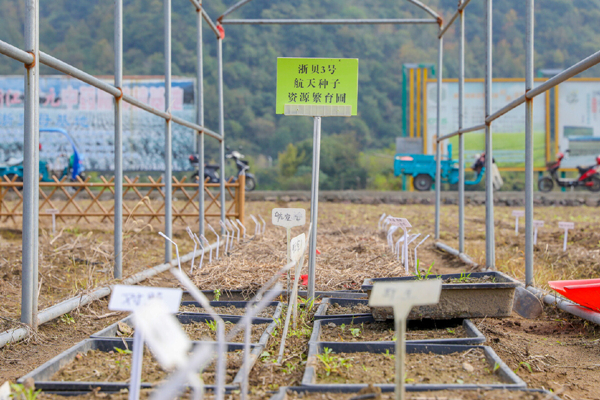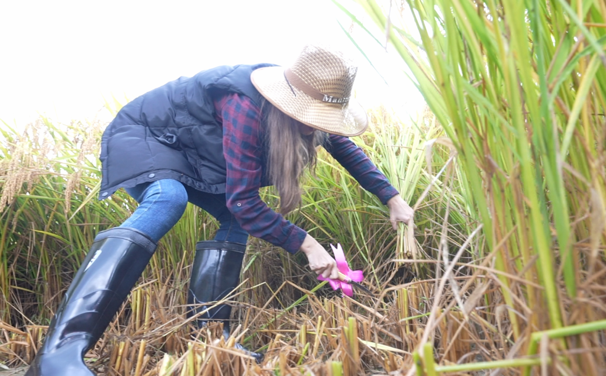Herbal seeds return to Ningbo after space journey

A breeding field for "Zhebei No 3" aerospace seeds in Zhangshui town, Ningbo. [Photo/Zhang Haohua]
China has retrieved the Shijian-19 satellite, a reusable return technology test satellite which carried a diverse array of seeds, including zhebeimu (thunberg fritillary) seeds curated by a collaborative research team from Ningbo University and Zhangshui town, Ningbo.
This space experiment aimed to tap into the unique microgravity environment of space to conduct space breeding and quality evaluation, laying a solid foundation for the cultivation of high-yield and high-quality zhebeimu varieties and the advancement of China's original space-based Chinese herbal medicine breeding technology.
After a two-week journey in the vast expanse of space, the "Zhebei No 3" seeds returned to their earthly home and were planted. The seed variety was chosen for its stability, high yield potential, superior quality, strong disease resistance, and moderate reproduction rate. Thanks to advancements in the aviation industry, more seeds were carried in this experiment than the previous one.
Zhebeimu, one of the "Eight Famous Medicinal Herbs of Zhejiang", serves as a major economic crop and crucial source of income for Zhangshui town, and it has been planted in the area for over 400 years. In 2024, the town cultivated zhebeimu on over 1,100 mu (73.33 hectares), yielding more than 1,000 tons with a value exceeding 40 million yuan ($5.51 million).
Zhangshui has forged a partnership with Ningbo University, utilizing some of the space-bred seeds for scientific research while planting others in the town.
Shao Jiangwei, head of the Ningbo Haishu District Zhebeimu Association, said that space breeding could lead to the discovery of new zhebeimu varieties, enriching the germplasm resources and playing a pivotal role in advancing related industries in Ningbo.

 A look at China's economic data in October
A look at China's economic data in October  Autumn spectacle unfolds in Siming Mountain
Autumn spectacle unfolds in Siming Mountain  China makes outstanding contributions to global energy transition
China makes outstanding contributions to global energy transition 


